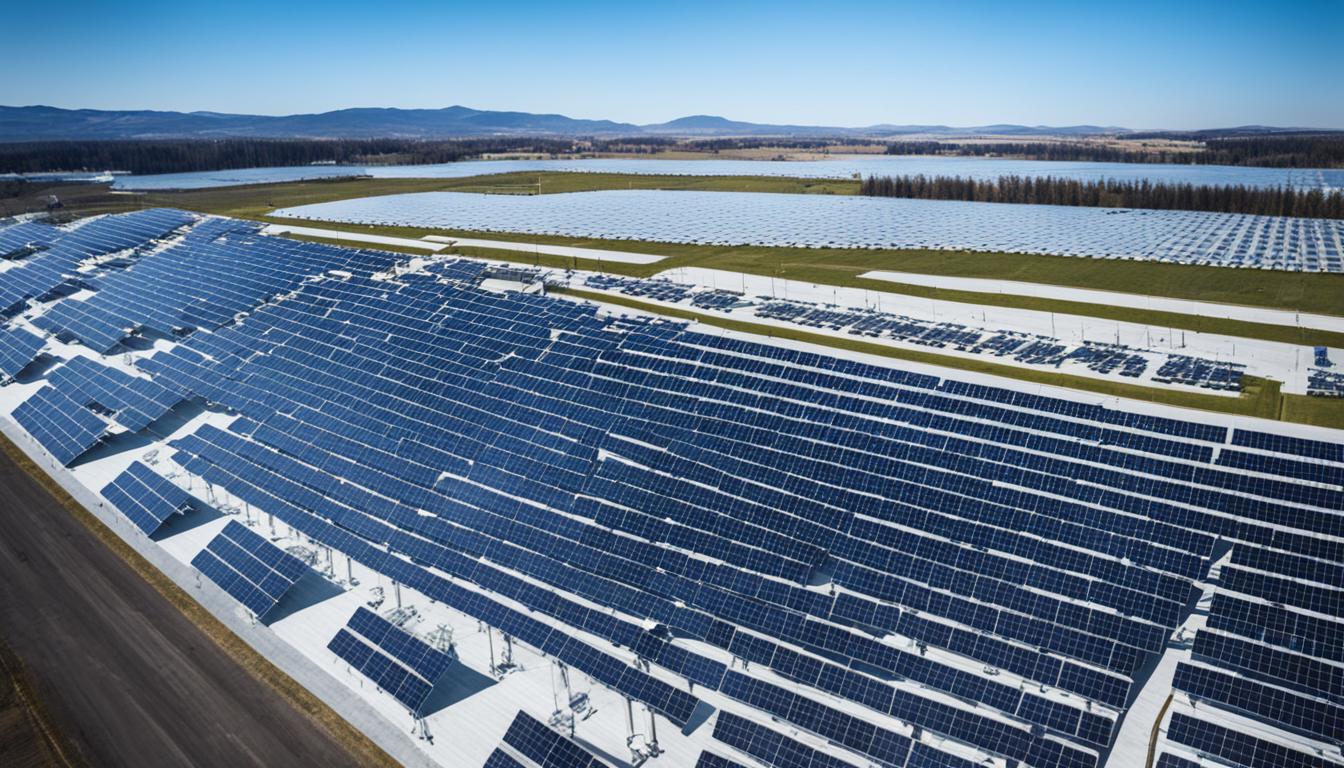
Solar Panel Import Tariffs Benefit From Biden's Extension of Levies

Liam Cook
Posted 9/29/2023
With the extension of these levies, the Biden administration is demonstrating its dedication to promoting domestic manufacturing and protecting American jobs. By imposing tariffs on solar panels imported from certain countries, the aim is to level the playing field and foster the growth of the domestic solar industry. This not only creates opportunities for American manufacturers but also helps safeguard the quality and reliability of solar products.
So, what are the implications of President Biden's decision? How will it impact the affordability and availability of solar energy in the United States? Join us as we explore the details of these tariffs, their origins, and the reasons behind the extension. Together, let's uncover how this move can bring us closer to a more sustainable and prosperous future.
Understanding Solar Tariffs and Import Duties
In this section, we will provide a comprehensive overview of solar tariffs and import duties. Solar tariffs are taxes or fees imposed on imported solar panels, while import duties are charges levied on goods brought into a country. These measures are implemented to regulate international trade and protect domestic industries.
Solar tariffs play a significant role in the solar energy industry. They affect the costs of solar panels, which are essential components of solar power systems. When solar panels are imported, they may be subject to additional fees, making them more expensive for consumers.
Import duties, on the other hand, are a form of trade barrier that can impact the affordability and availability of solar panels in the United States. These duties can make imported solar panels less competitive compared to those produced domestically.
Both solar tariffs and import duties were initially implemented to safeguard the interests of domestic solar panel manufacturers. By imposing these measures, governments aim to provide a level playing field for local companies and encourage domestic production. These policies also promote job creation and the growth of the renewable energy sector in the country.
It is crucial to understand the impact of the recently extended solar panel import tariffs. The extension reflects the Biden administration's commitment to supporting domestic solar panel manufacturers and advancing clean energy initiatives. However, it is essential to assess the potential effects on the affordability and accessibility of solar energy for consumers.
The Biden Administration's Extension and Its Impact on the Industry
The recent decision by the Biden administration to extend solar panel import tariffs has significant implications for the solar industry. By aligning with the administration's commitment to clean energy, this extension is expected to bolster domestic solar manufacturers and stimulate job creation in the renewable energy sector.
With the extension in place, domestic solar panel producers are likely to reap the benefits of reduced competition from imports. This shift could provide them with a competitive advantage, encouraging growth and innovation within the industry. As a result, consumers can expect an increase in the availability of affordable, domestically manufactured solar panels, making clean energy more accessible to a wider population.
In addition to supporting local manufacturers, the Biden administration's decision also has the potential to drive job creation. As the demand for domestically produced solar panels rises, so does the need for skilled workers in the manufacturing sector. This presents an opportunity for job seekers and those looking to transition into the clean energy field, fostering economic growth and sustainability.
The extension of solar panel import tariffs reflects the Biden administration's commitment to strengthening the renewable energy sector, reducing reliance on imports, and promoting cleaner energy alternatives. By supporting domestic solar panel manufacturers and creating job opportunities, this move reinforces the administration's vision for a greener and more sustainable future.
FAQ
What are solar tariffs and import duties?
Solar tariffs and import duties are fees imposed on the importation of solar panels from foreign countries. They are designed to protect domestic solar manufacturers by making imported panels more expensive.
Why were solar tariffs and import duties implemented?
Solar tariffs and import duties were implemented to support the growth of the domestic solar industry, encourage the manufacturing of solar panels within the United States, and protect American jobs.
Why did President Biden choose to extend solar panel import tariffs?
President Biden chose to extend solar panel import tariffs to continue supporting the domestic solar industry, promoting job creation, and increasing clean energy production as part of his administration's commitment to tackling climate change.
How will the extension of solar panel import tariffs benefit the industry?
The extension of solar panel import tariffs will provide continued protection and support for domestic solar manufacturers. This will incentivize the growth of the industry, stimulate job creation, and contribute to the expansion of renewable energy in the United States.
Will the extension of solar panel import tariffs affect the affordability and availability of solar energy?
While solar panel import tariffs may modestly increase the cost of solar panels, the overall impact on the affordability and availability of solar energy is expected to be minimal. The extension of these tariffs aims to strike a balance between supporting domestic manufacturers and ensuring the continued growth of the solar industry.
What does the extension of solar panel import tariffs mean for job creation?
The extension of solar panel import tariffs is expected to stimulate job creation within the domestic solar industry. By protecting and supporting American solar manufacturers, the tariffs can incentivize new investments and the expansion of manufacturing facilities, leading to more employment opportunities in the sector.
How will the extension of solar panel import tariffs impact the growth of the renewable energy sector?
The extension of solar panel import tariffs is likely to foster the growth of the renewable energy sector. By providing a level playing field for domestic manufacturers and supporting their competitiveness, the tariffs can encourage greater investments in solar energy projects, spur innovation, and contribute to the transition to a clean energy economy.